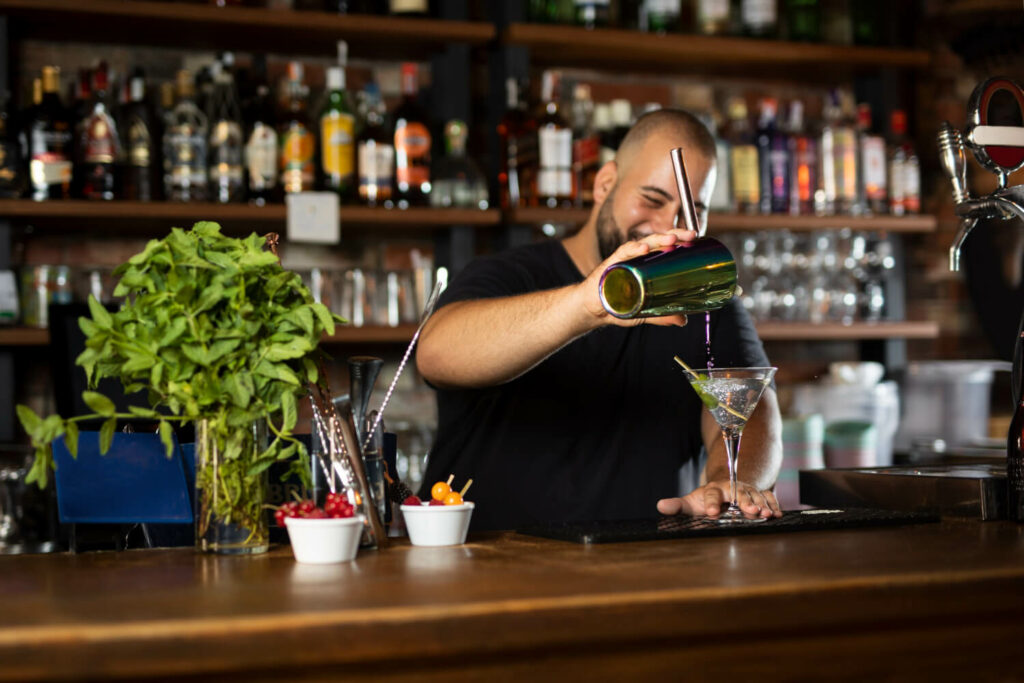Hello, fellow cocktail enthusiasts and eco-warriors! I’m Aalekh Rasal, a professional bartender in New York City, and today I want to share with you some thoughts and insights on a topic that’s very close to my heart—sustainability in the bartending world. Over the years, I’ve seen a significant shift towards more eco-conscious practices within our industry, and I’m thrilled to discuss how these changes are not just benefiting our planet, but also enhancing our craft.
The Shift Towards Sustainability
When I first started bartending, the focus was primarily on flavor and presentation. While these are still crucial, there’s been a growing awareness about the impact our industry has on the environment. This shift is fueled by both consumer demand for more sustainable and ethically sourced products, and a genuine concern among industry professionals about our ecological footprint.
From reducing waste to sourcing locally, sustainability is now at the forefront of modern bartending. It’s not just about making great drinks anymore; it’s about making a difference while we do it.
Reducing Waste in the Bar
One of the first areas where I noticed potential for change was in how much waste bars typically produce. From fruit peels and herb remnants to the disposal of glass and plastics, there are numerous opportunities for waste in a typical bar setting. However, there are equally as many opportunities to mitigate this waste.
In my own practice, I’ve implemented several strategies to help reduce waste. For instance, I make it a point to repurpose fruit peels and other organic leftovers. Citrus peels become ingredients in our house-made bitters or are dried and used as garnishes. Leftover herbs are infused into syrups or used to create decorative elements for our drinks.
Additionally, we encourage the recycling of glass bottles and the proper disposal of plastics. It’s amazing to see how small changes can lead to significant reductions in the waste we generate.
Sourcing Locally and Ethically
Another key component of sustainable bartending is the sourcing of ingredients. I have always been passionate about using fresh, local ingredients not only because they taste better but also because they reduce the carbon footprint associated with transporting goods over long distances.
We work closely with local farmers and producers to source our spirits, fruits, and herbs. This not only supports our local economy but also ensures that we use the freshest ingredients possible. Moreover, supporting small-scale producers often means that the methods used are more traditional and less harmful to the environment.
Educating Customers and Staff
As bartenders, we are in a unique position to educate others about the importance of sustainability. By explaining why we use certain ingredients or practices, we can raise awareness and perhaps inspire our patrons and peers to adopt more eco-friendly habits in their own lives.
Training staff on sustainable practices is equally important. Everyone in our team understands the value of sustainability and is trained in techniques that minimize waste and environmental impact. This collective effort ensures that our eco-friendly practices are consistent and effective.
The Future of Sustainable Bartending
Looking forward, I am optimistic about the future of eco-friendly bartending. With new technologies and an increasing number of bar owners and bartenders embracing sustainable practices, the potential for innovation is boundless.
My dream is to see sustainability become a core component of bartending worldwide, not just as a niche or a trend, but as a standard practice. I am currently exploring more ways to integrate green technologies in my work, such as using energy-efficient appliances and implementing water-saving techniques.
Conclusion
The movement towards sustainability in the bartending world is not just a fad—it’s a necessary evolution of our craft. As bartenders, we have the responsibility and the opportunity to lead by example, showing that it is possible to mix business with environmental consciousness.
Every cocktail we serve, made with consideration for the planet, is a step towards a more sustainable future. Let’s raise our glasses to that! Cheers to a greener, more sustainable bartending industry!
